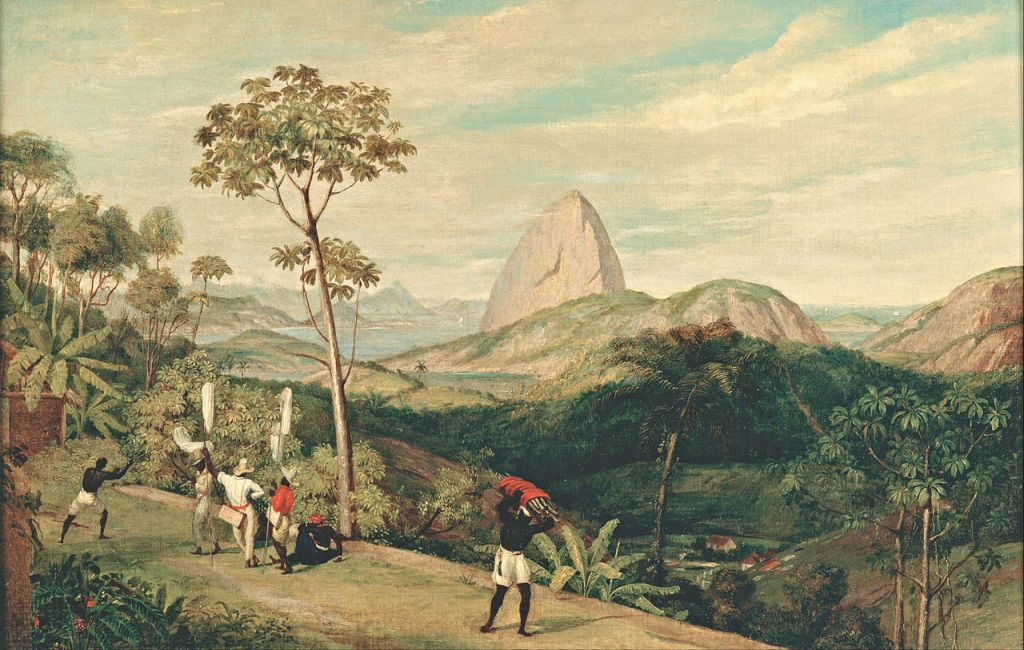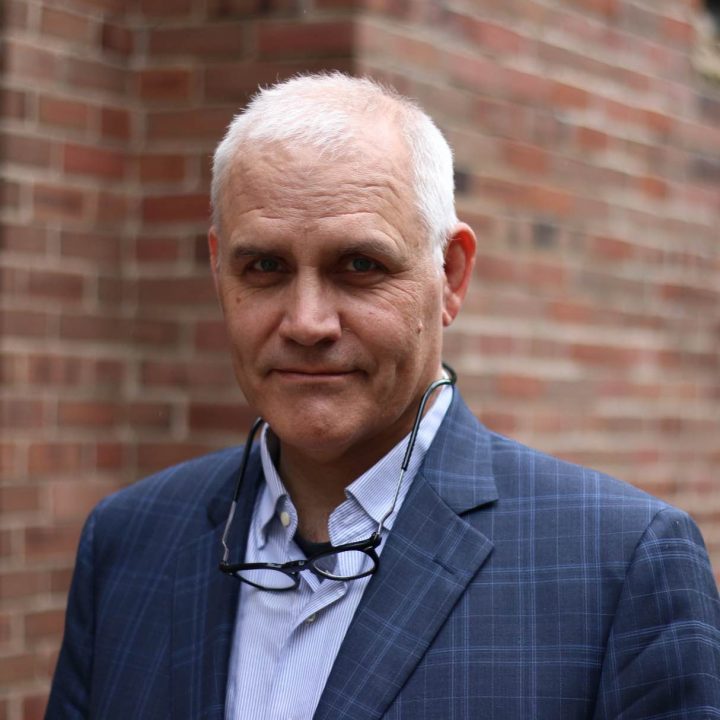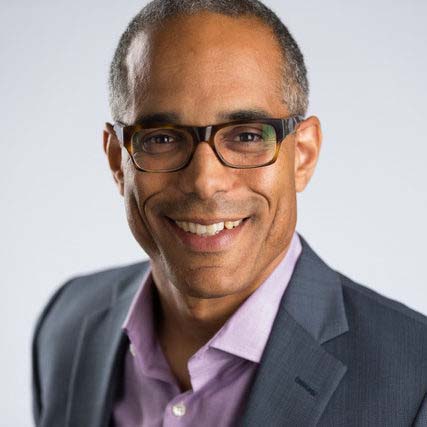
Enslaved: Peoples of the Historical Slave Trade is an intersection between Data Science and Black history and contains the historical data of the people who suffered through the transatlantic slave trade. The data comes from census reports, baptismal, shipping and sales records that tell the story of people captured by the transatlantic slave trade. The project, run by Michigan State University with the generous support of The Andrew W. Mellon Foundation, uses Wikibase to interconnect different projects and historical databases in a Linked Open Data platform.
Elisabeth Giesemann talked to Professor Dean Rehberger and Professor Daryle Williams about the motivation and goals behind Enslaved.org.
Elisabeth Giesemann: Please introduce yourselves.
Dean Rehberger: I’m the Director of MATRIX, Center for Digital Humanities and Social Sciences and also Associate Professor in the Department of History at Michigan State University. Next to running the center, I’m interested in how computing can be used in doing historical and humanistic work.
Daryle Williams: I teach at University of Maryland at the Department of History. My research interest is primarily in 19thcentury Brazilian history. At Enslaved.org I’m one of the co-principal investigators.
Elisabeth Giesemann: Can you tell us a bit about the initial idea behind Enslaved.org?
Dean Rehberger: Even before Enslaved.org, we worked on a site called Slave Biographies: The Atlantic Database Network. We collected and analyzed historical records about the lives of enslaved people. The problem was that there were so many different softwares, data formats and tools. We had access to a lot of data, but it was in silos and difficult to work with. We wanted to let the different projects that developed over time speak to each other. We wanted to combine them and make them accessible to a larger community.
Daryle Williams: One historical concern is that slavery erased names and destroyed knowledge. That knowledge is impossible to recover fully. But there are millions of records of the millions of people who were enslaved, and many are named in those records. We are seeking to systematize and reconstruct from what remains.
On a broader level, we want to advance the scholarly and political conversation over racial justice with our work as historians: “What does it mean to see the enslaved as named individuals? What can we do to literally say their names?”
Elisabeth Giesemann: You work with historical data from the transatlantic slave trade. What are some difficulties with this data when integrating it into a database?
Dean Rehberger: There are so many questions that arise. One is how to define geographical space. Is it a place, or is it an event that only exists in a certain period of time? Once you start answering those questions, you open up so many other data problems. For instance, we have all this data in handwritten documents that we have to digitize. Or we have data on material that is deteriorating and is going to disappear, so we need to preserve and capture that original data.
Daryle Williams: Also, a lot of the information available in the archival record is clearly an artifact of colonial slavery and written from the persective of the enslaver, so we have to ask ourselves if and how we should reproduce them as data. The names change in different documents, and there are countless spelling variants depending on time, language, and region. We have registries that list the ethnic, national, and racial designations of the people: Mulatto, Quiçama, Congo. They have various meanings over space and time.
Elisabeth Giesemann: Is there an academic peer-review process for these questions?
Daryle Williams: Our ontology is a product of scholarly communication processes and debates; there are arguments about the historical categories. The data must account for this if we talk about the lives of the enslaved. There are basic categories: name, gender, health status, but also freedom status: people who were only conditionally free and those who were not free. Do we accept that under today’s standard? No, but the historical record and experience tells us this was real.
Dean Rehberger: We are always dealing with uncertainty. There are often two conflicting records, but they are still valid records. This is made worse by the fact that most records were produced by the colonizers who stamped names, descriptions, dates on people. These records are often inconsistent, sometimes conflicting. We want the people who use Enslaved.org to go through these records and make sense of them. We want to send the user back to the original source.
As historians, I see our task more in asking questions, not providing answers. We don’t have all the solutions. This is also one reason why we chose to work with Linked Open Data and specifically Wikidata. It allows for the complexity that is part of our work.
Daryle Williams: We are not neutral, nor are our contributors. There’s an argument in everything, even in a spreadsheet. In my research, I work with what is generically called so-called slave ‘runaway ads.’. But that label obviously can be misleading. In some instances, what’s on notice is a master’s request for the return of enslaved property that’s been stolen or kidnapped.
As historians we are confronted with the problem of how to talk about the unknown and the unspeakable. Much of this work is done in literature and fiction. Novelists like Ta-Nehisi Coates or Toni Morrison address the horrors of slavery in their writing. So when culture and fiction evoke the spectre of these horrors, we too try to deal with that, in a data environment.
Dean Rehberger: What we’re doing is bringing together records. We put them together so that the user can go back and find the original. The tragedy of slavery is monumental, and the problem and the horror of it is that most of the records tend to be because people were commodified. It’s a real conundrum, because the only way to recover the names of the people is to recover these records. We could let them disappear, but then we would do the same kind of violence to them. So I think we have to continue doing our work, but we have to be thoughtful, and we have to be ethical and keep an open mind to criticism.
Elisabeth Giesemann: Do you see Enslaved.org as a way of contributing to current political events?
Daryle Williams: Every historical question is a product of its time. So today we are part of the racial justice movement, and want to show that we are living in the systems built by slaves. The University of Maryland, the institution where I teach, was built by slave labor. So we somehow have to grapple with that. Our question becomes: how we can use the privileges we have for anti-racist work?
Then there’s also power and disruptive energy around names in this current moment, where big data dehumanizes us, and everything is turned into algorithms. We’re interested in Black people, their stories, their names and their pasts.
One of our programmers has taken back to his community the whole language of “slave” and “master” [in computing hardware], these hierarchies that they’re having. And he brought it back to his community and asked them: “Is this where we should be?” So the question is, how can we, with this project, dismantle the power that anti-Blackness and enslavement still has on our lives.
Dean Rehberger: One reason for the genesis of this project was that people don’t know enough about slavery. They think of it in one-dimensional terms: slaves went to the field and worked on cotton and died. But this isn’t true: they built this country, they were highly skilled laborers, they brought technology from Africa and they changed the landscape. We want to tell the story of the complexity of enslavement, as well as keeping in mind the horrors. One thing that we do as historians is not provide a simple answer, but highlight complexity. There’s so much more than we don’t know.
Elisabeth Giesemann: Please tell us a bit about the challenges that you faced when you started the project.
Dean Rehberger: A lot of projects get built, and often they disappear. There’s all that work and data, and it just goes away. So that’s also what we asked ourselves: how can we do this in a stable way that can go forward? And that is – for us – one of the most exciting things about working with Wikibase. Wikibase has a sustainable community with lots of people working together. Even if we stop working on Enslaved.org, the technology would still get updated. What’s really exciting to me about Wikibase is that Wikimedia Deutschland knows a lot about data and the problems of working with data from different sources.
Daryle Williams: One challenge also lies In the openness of our material and mission. There are a variety of disciplines and scholarly practices involved in Enslaved.org, but we also have interest from people outside the academy, genealogists or individuals looking for family members who don’t have the time to review their work in the same way that we expect it from a scholar. We still want them to engage and contribute their data. So we have to open up this project that is very research-driven and has its origin in higher education.
Elisabeth Giesemann: Do you have advice for other scholars who want to start a Digital Humanities project?
Dean Rehberger: Talk to people, Wikimedia Deutschland and other digital humanities projects. Often people tend to start building their project, and then they build silos. Also, you can get advice to make your project sustainable. With technology, I could tell you an easy answer for a problem, but six months from now the answer could be totally different. The key is to know and understand and continually traverse the landscape — no different than any discipline — but often unlike the humanities — it is a collaborative venture. In short, talk to people.
Daryle Williams: The work culture can be really difficult for the traditional humanist. We come out of a tradition where somebody is qualified enough to handle primary sources, and they do this magical work by themselves and produce a monograph. But Digital Humanities makes visible the infrastructure of knowledge, the archivists, librarians, and institutions. Single authorship and the brilliance of one scholar is just not what digital humanities is. Ownership has to be shared, you have to think in a team. And if you’re working in a team, team management is an important skill set.
The interview transcript has been lightly edited for clarity.
Originally published by Elisabeth Giesemann to Wikimedia Deutschland Wikimeida Tech News on 18 February 2021

Can you help us translate this article?
In order for this article to reach as many people as possible we would like your help. Can you translate this article to get the message out?
Start translation

